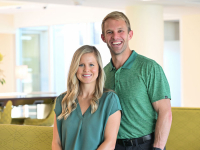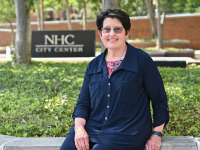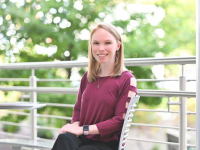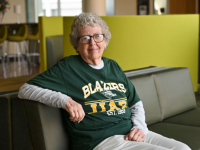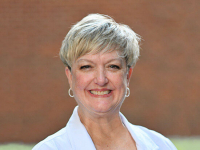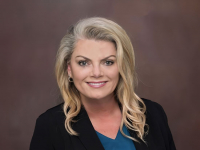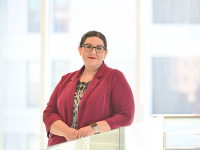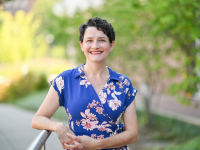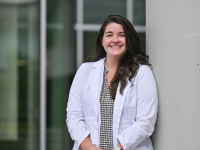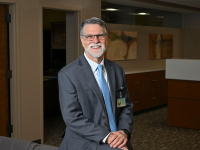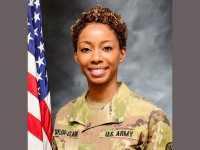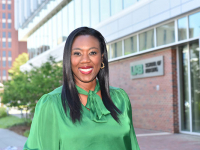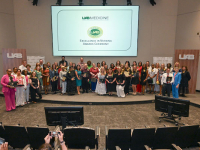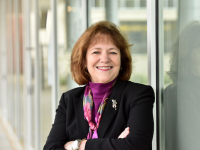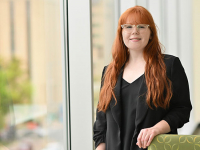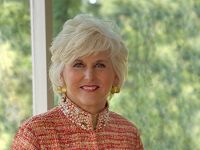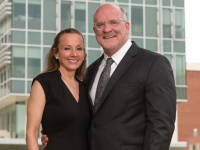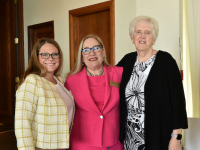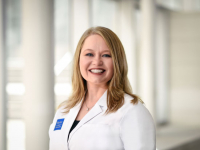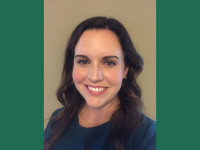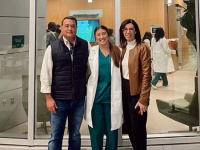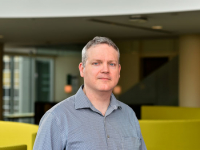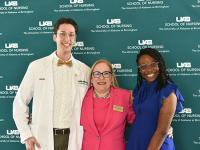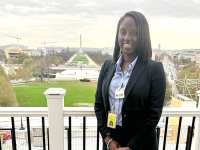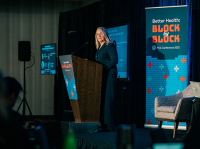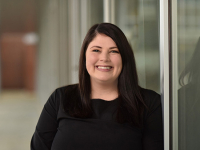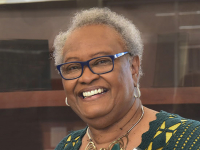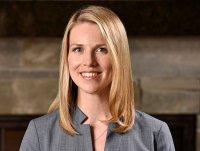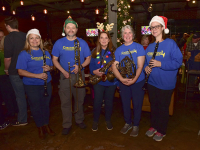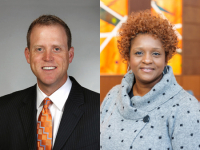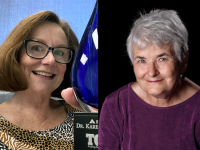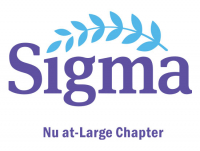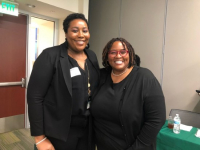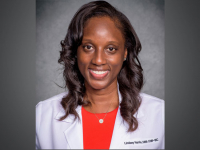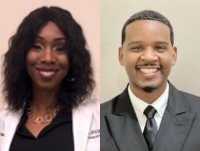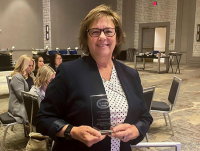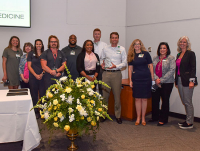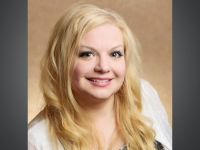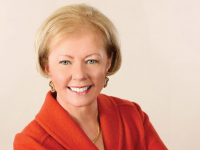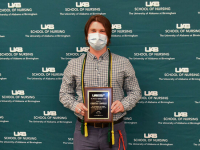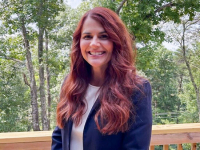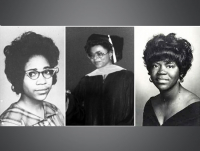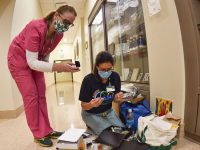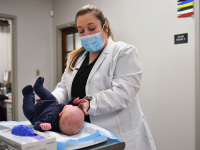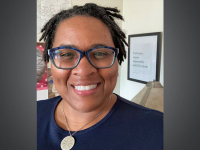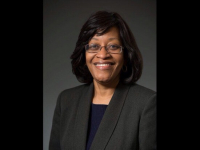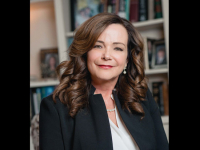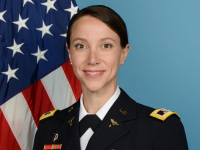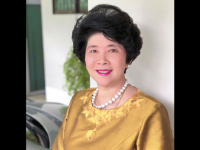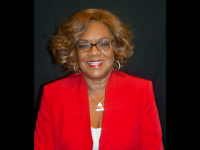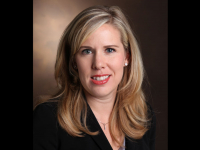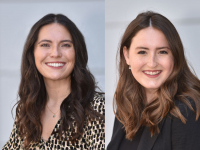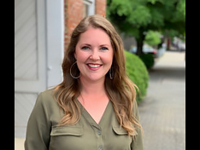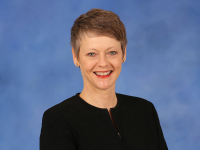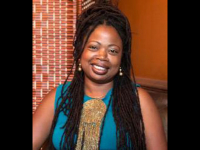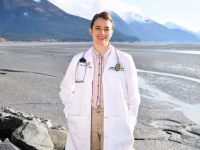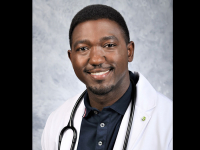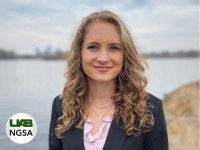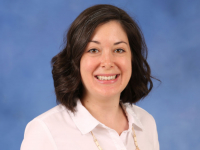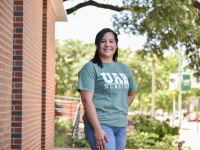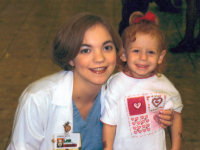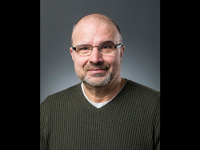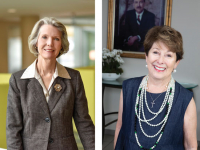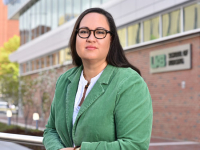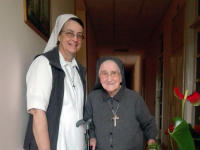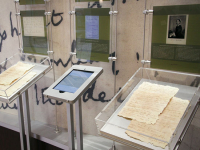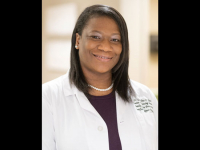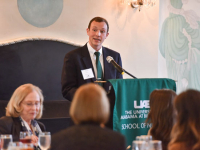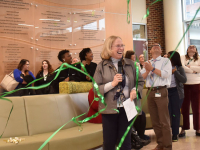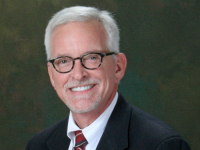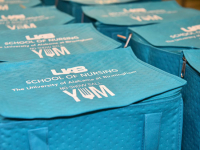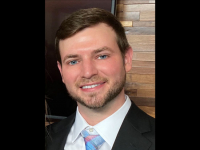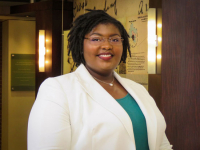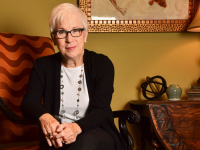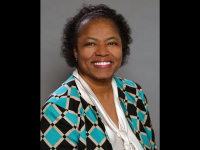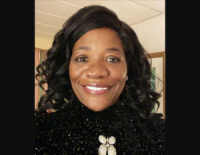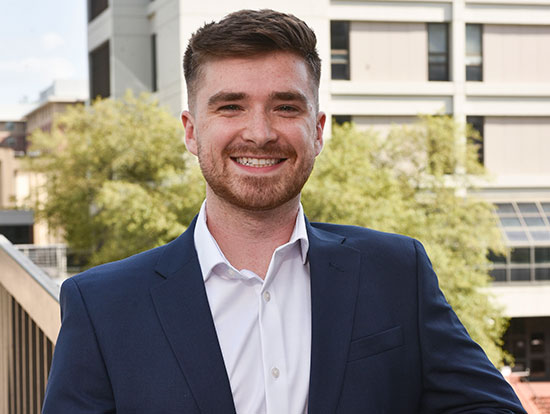
By Staff
The Albert Schweitzer Fellowship of Alabama (ASF) has named University of Alabama at Birmingham School of Nursing graduate Collin Dorner, BSN, RN (BSN 2021), to its 2022-23 class. Dorner is one of 20 fellows, marking the largest ASF class to date.
During the 13-month fellowship, students work to improve the health and well-being of under-resourced populations throughout the state of Alabama.
“As vulnerable populations in our communities face significant obstacles to health and improved quality of life, it is encouraging to see more students rise to the challenge of tackling these issues head-on,” said Executive Director of ASF of Alabama Kristin Boggs. “We are excited to come alongside these students, along with our academic and community site partners, to channel their ideals and grow their commitment to using their knowledge to affect change for under-resourced communities."
Dorner was inspired to apply for this fellowship following clinical experience at The Foundry’s Changed Lives Mobile Clinic, which serves men at the Changed Lives Christian Center in North Birmingham, a faith-based organization that offers transitional housing in order to break the cycle of homelessness. Through this clinic, CLCC residents can access primary care and resources that aid in overcoming substance misuse.
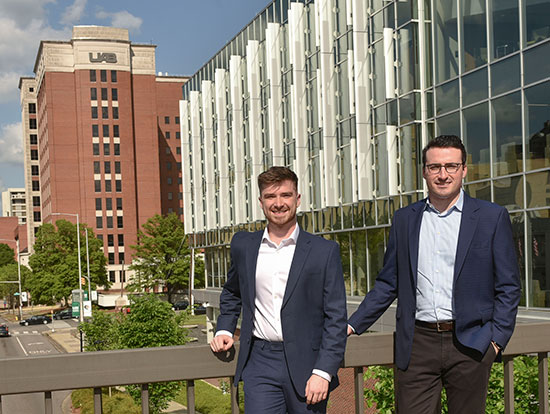
During his clinical experience, Dorner worked closely with UAB School of Nursing instructors Deborah Bowers, DNP, DMin, MDiv, CRNP, FNP-C (BSN 1985, MSN 2013, DNP 2017) and Emily Patton, MSN, CRNP, FNP-C (MSN 2013, DNP 2020). Bowers will serve as a mentor during this fellowship, and Patton will play an important role through her work at the clinic, Dorner said.
“My decision to apply for this fellowship ties into the passion that Dr. Bowers had in my undergrad classes and community classes,” Dorner said. “I think a lot of students can focus on critical care experience, which is incredible, but it can be easy to overlook community. Those classes spoke to me, however, and provided an opportunity to do a lot of simulations with low resourced clinics. That really spurred my interest in working with under-resourced populations.”
During the fellowship, Dorner is collaborating with UAB Heersink School of Medicine student Eric Mussell to encourage medication adherence. They will work with residents at CLCC, developing a system to track medication adherence and providing resources between primary care visits. They also will identify barriers and develop interventions that encourage patients to remain diligent while taking medication.
“We want to focus on medications that treat hypertension in order to help improve the health of this patient population,” Dorner said. “Sometimes at the clinic we see patients who have not kept up with their medications and have very high blood pressure. Our goal is to provide an intermittent meeting between primary care appointments in order to encourage medication adherence and hopefully avoid the need for an urgent care visit.”
Dorner and Mussell hope to set up this project so that it will continue with one nursing student and one medical student each year to facilitate that connection. Patients also benefit from this interdisciplinary partnership, Dorner said, as he and Mussell are able to learn from each other and offer a balance of perspectives.
“Eric and I are both volunteers at the clinic, and we chose to enter our project as a team in order to bridge the gap between professions and provide the benefit of interdisciplinary care,” Dorner said. “Due to the COVID pandemic, we did not get as much physician/nurse interaction as students, and I think facilitating a project that can continue a bond between our two schools and benefit the community is so important.”
The project is still in its early stages, Dorner said, and they are compiling resources needed to best support patients.


